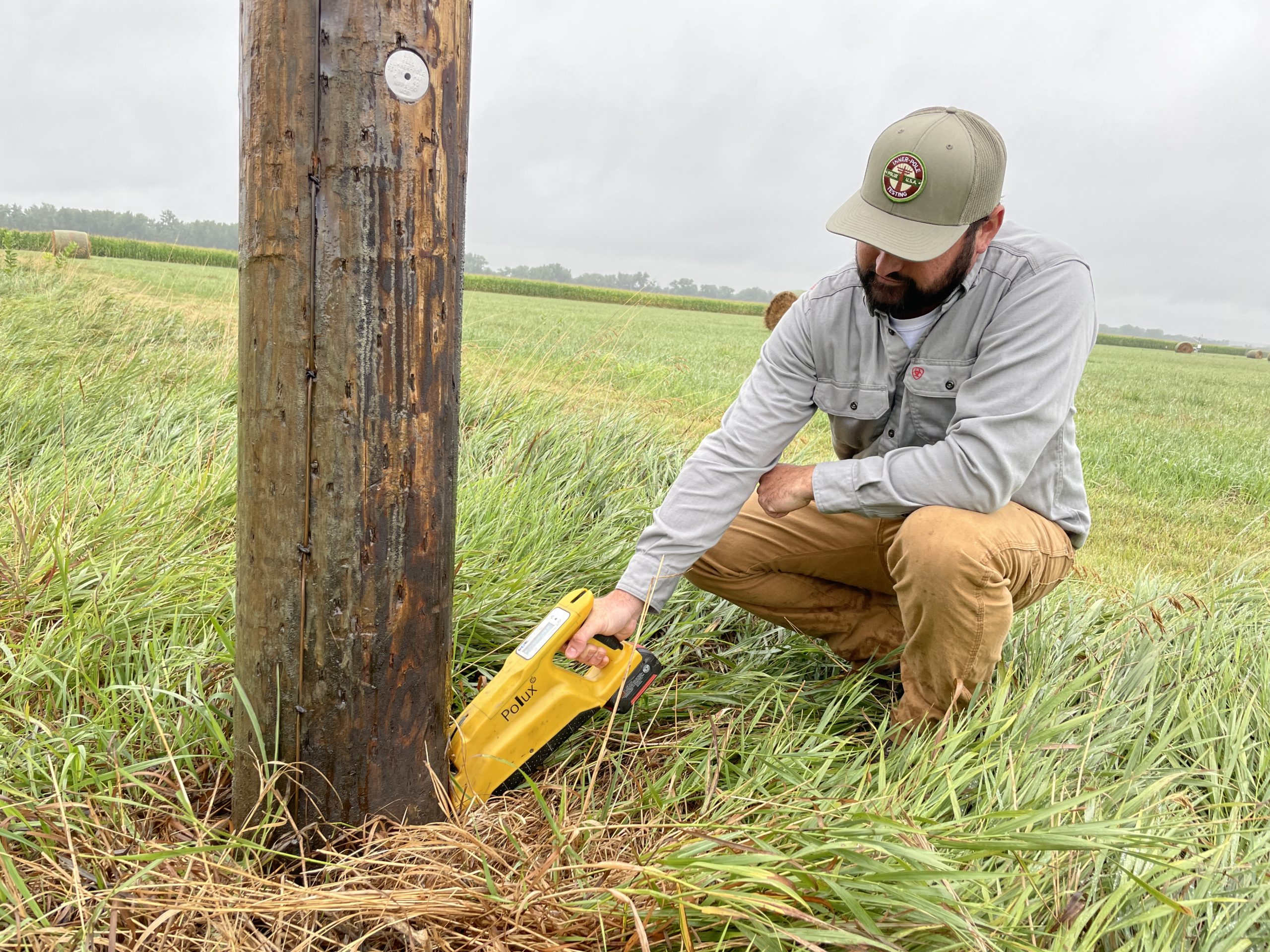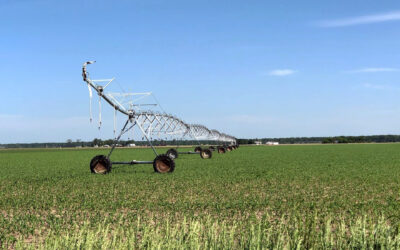
As a not-for-profit utility, Dawson PPD focuses on cost-effectively extending the life of its existing facilities while maintaining adequate levels of safety and reliability. Testing wooden poles helps the District ensure reliability and long life of its equipment, saving customers money in the long run.
Traditionally, pole testing involved a hammer for sounding, a shovel for digging around the base and drilling holes to test for decay. Today, Dawson PPD hires a contractor that uses a scientifically-based system called POLUX as a less-invasive and more accurate form of testing.
POLUX works by sending two, three inch long probes the size of an eight-penny nail into the base of the utility pole. This is the most vulnerable point where decay is most likely to occur on a pole. The probes measure resistance and moisture content of the pole. This information, along with the type of wood the pole is made of and how it was treated are run through a computer program with the pole’s GPS location recorded.
Typically, Dawson PPD uses a Southern Yellow Pine tree for its poles, which should have a resistance of 8,000 pounds per square inch when new. If the measurement falls below 50 percent of the recommended resistance, in this case 4,000 PSI, the pole is marked for replacement.
All of Dawson PPD’s poles are tested every 10 years on a rotating schedule with 10,000-11,000 poles tested annually.
OTHER NEWS
Public office candidate training school
Get the information you need for an effective and winning campaign when you attend the NREA Candidate Training School held in Lexington on November 19, 2021. Whether you're interested in a local election or a state election, this class will help you learn more about...
Clean diesel rebates available now through January 13, 2022
Nebraskans looking to upgrade their diesel irrigation engines to electric motors may receive a rebate through the Nebraska Department of Environment and Energy. The application period is October 1, 2021, through January 13, 2022. The NDEE's Clean Diesel Rebate Program...
Sassy Sisters Swine offers direct-to-consumer pork products
Two sisters, one business dream: To sell pork raised on their Sumner family farm while sharing their passion for agriculture. The business, Sassy Sisters Swine, was founded in August 2020 by Mekenzie and Mattison Beattie. Mekenzie is a University of Nebraska-Lincoln...



